CPC process
The CPC process is FUJICO's original and epoch-making technology that
break through the limits of what was impossible,
opening up infinite possibilities.
FUJICO originally developed the CPC process, which is epoch-making technology. This technology
can realize the cladding of material that could never be achieved by conventional processes.
The cladding layer has uniform chemical composition and microstructure, which allows the ability
to design the cladding thickness more freely. The rolls and rollers manufactured by
the CPC process are highly appreciated in domestic and overseas markets.
Outline of the CPC process
The CPC process (Continuous Pouring process for Cladding) consists of epoch-making technology for compound casting. It can carry out the cladding of special material, which is impossible to manufactuer by the other methols.
The cladding layer has a uniform chemical composition and microstructure from the outer surface to the boundary, and a sound boundary with complete metallurgical bonding.
Furthermore, the cladding material and its thickness can be designed more freely. The rolls and rollers manufactured by the CPC process for rolling mills, leveling, and traversing lines have received high evaluation regarding excellent durability in Japan and all over the world.
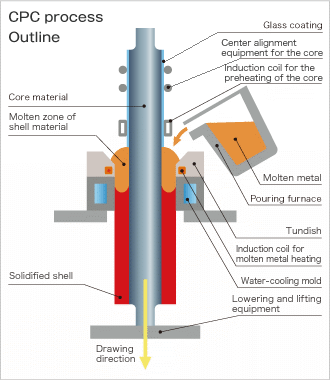
Manufacturing capability regarding size and material
| Product type | Solid and sleeve types |
|---|---|
| Diameter of product | ø180 to 900mm |
| Length of cladding | Max 8,000mm as-cast |
| Mass of product | Max 20,000kg as-cast |
| Thickness of cladding(as-cast) | Max.150mm as cast |
| Size and material of core | Outside diameter ø150 to 800mm, ordinary and special steel |
| Cladding material | Cast iron, special cast iron. special cast steel and non-ferrous material, such as Stellite |
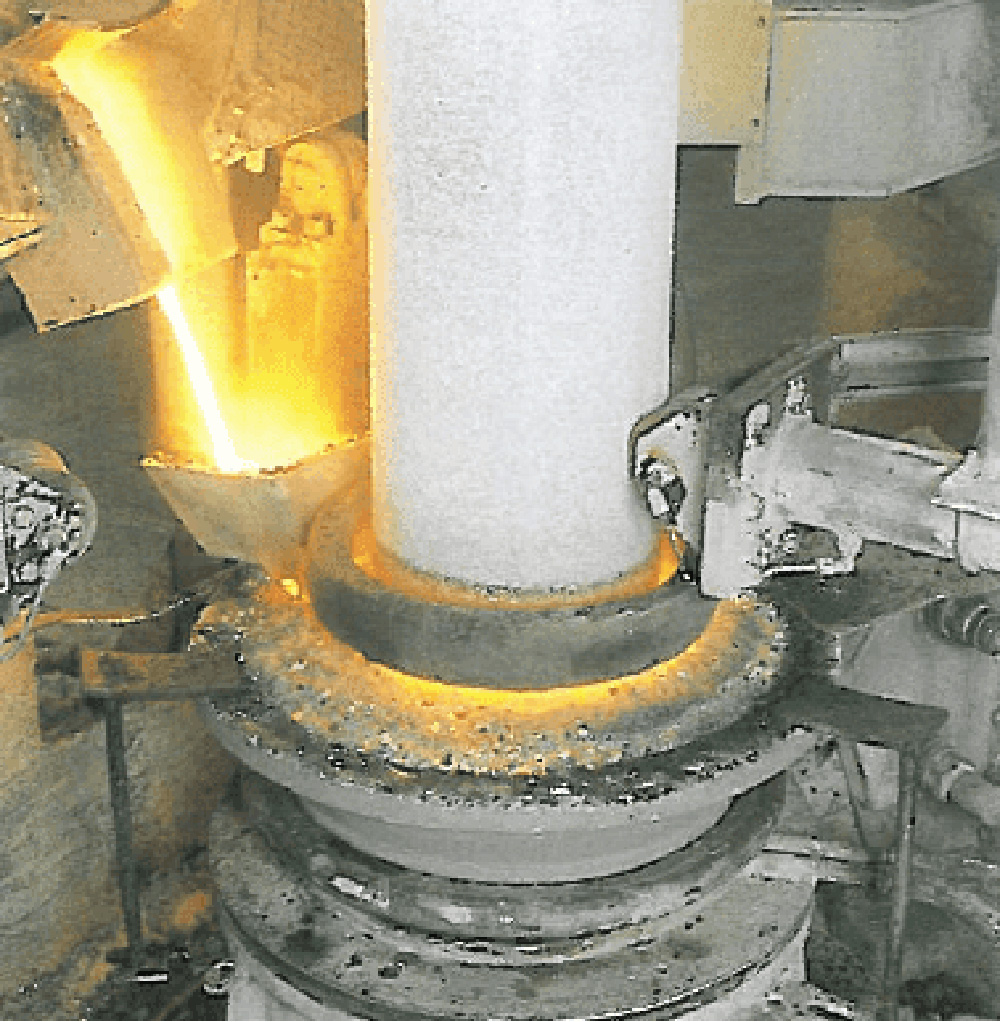
Features of the CPC process
The CPC process has three major features as follows:
(1)The high-alloying and multi-alloying of the shell material is easily designed.
(2)The cooling rate of solidification on the shell is high and a fine solidification structure can be obtained; and
(3)A strong and tough steel base material can be used for the core.
Further, the CPC process is said to be an ideal manufacturing process for composite type material that realizes the most important properties required for rolls and rollers, such as high wear resistance, high corrosion resistance, high surface roughening resistance, and excellent toughness.
Products
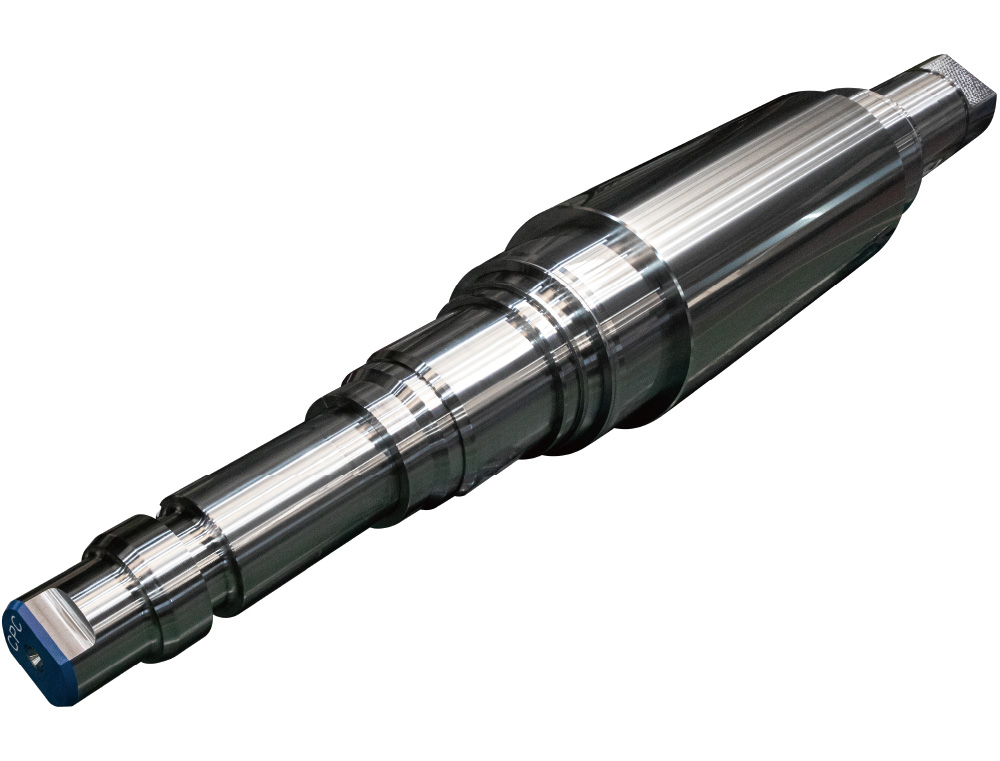
●Work rolls for hot-strip mill finishing trains
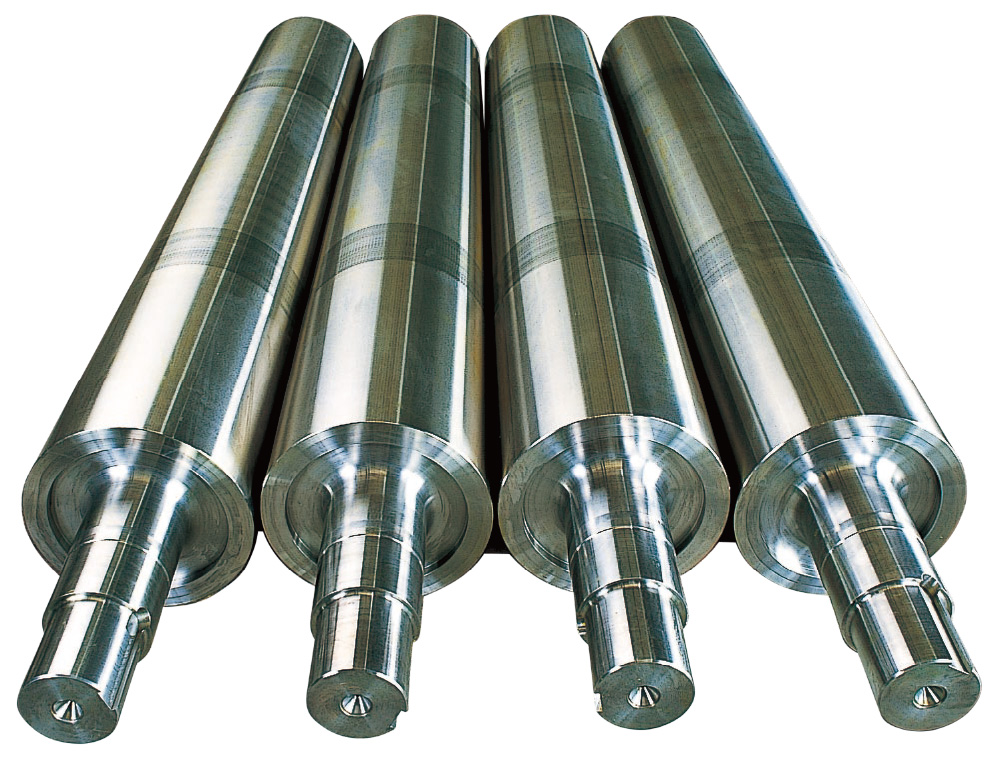
●Wrapper rolls for down coilers in hot-strip mills
●Run-out and roughening table rollers in hot-strip mills
●Bottom pinch rolls for down coilers
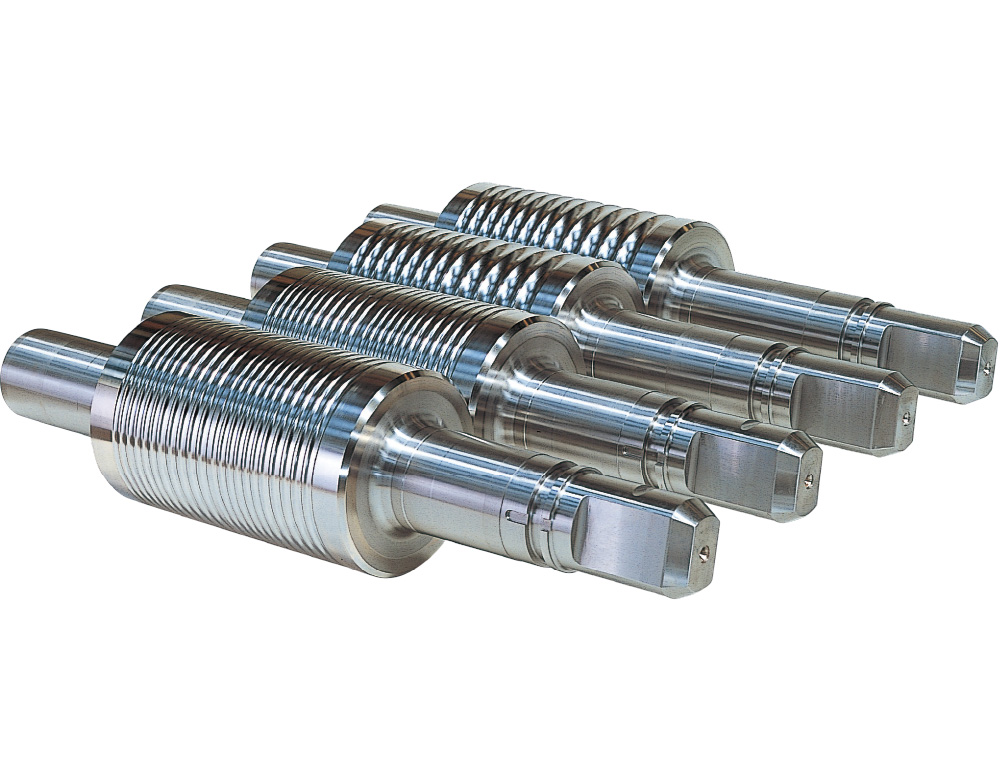
●Rolls for bars and wire-rod mills
●Rolls for section mills
